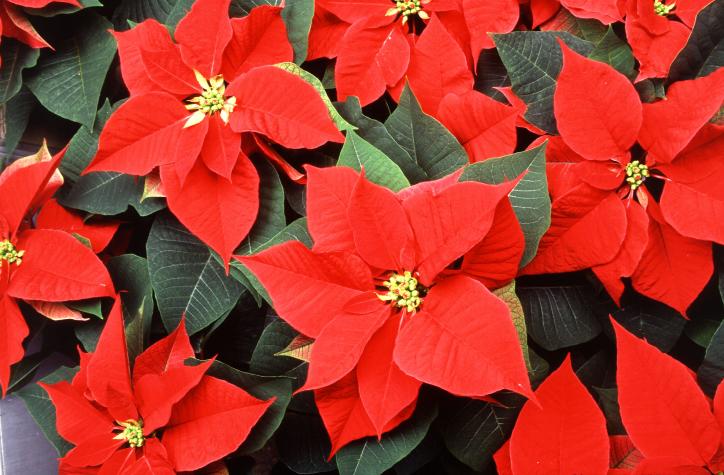

Take poinsettia off Santa's 'naughty' list
Dispelling the myth that poinsettias are poisonous, this article shows how their bracts pose little danger and offers tips for safe care
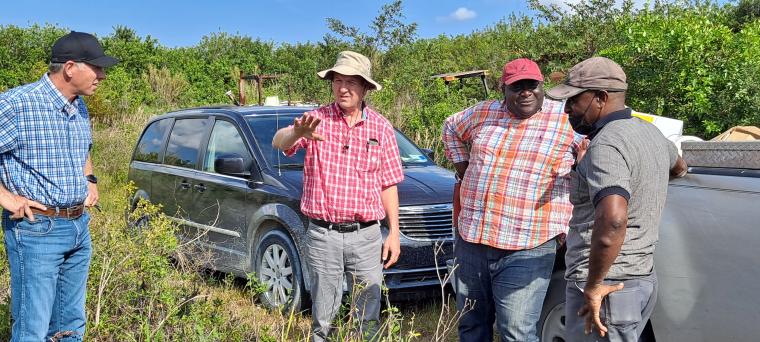
MU Extension helps farmers in the Bahamas
Specialists traveled to the Bahamas to teach farmers about soil, composting, crops, and hydroponics to boost local food production.
How you feed hay this winter is more important than ever
GALENA, Mo. – With a shortage of standing forage for cattle and the low availability of hay, it is more important than ever this winter to reduce waste when feeding hay.Hay waste is normal, but it can be controlled and minimized, said University of Missouri Extension agronomy specialist Tim Schnakenberg.
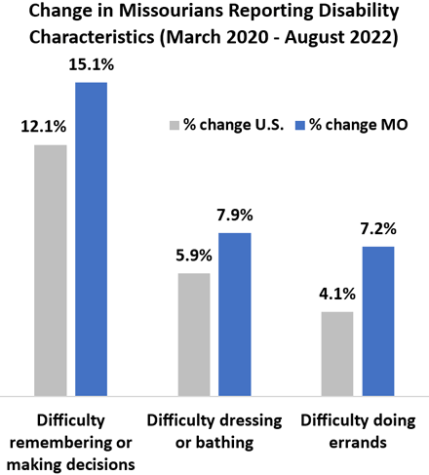
Long COVID in workers could be a challenge for Missouri employers
COLUMBIA, Mo. – Missourians report higher rates of disability and long COVID than the U.S. average, according to a study brief by University of Missouri Extension. Long COVID – ongoing health problems that last months or more following infection with the COVID-19 virus – could be keeping 2 million to 4 million U.S. workers out of the workforce. The brief, “COVID-19 and Paid Leave,” is available for download at muext.us/MEIOct2022.
Pastures, goats benefit from grazing an invasive species
Goats grazing on invasive sericea lespedeza improve pasture quality and gain natural anti-parasitic benefits, according to University of Missouri research.
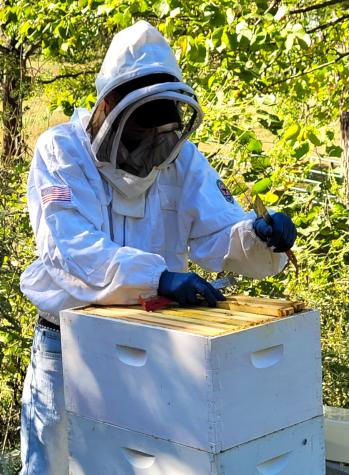
Heroes to Hives and other MU Extension programs help veterans
Programs train veterans in beekeeping and farming while connecting them with peers and new career opportunities.
Nonprofit finds pearls in the Elevate program, Boone Center Inc. - St. Peters, MO
Boone Center Inc. grows nonprofit impact and workforce skills through the Elevate program, gaining insights and strategies for success.

Ina Linville inducted into National 4-H Hall of Fame
Ina Linville is honored in the National 4-H Hall of Fame for decades of leadership and contributions to youth development.
New MU lab helps food businesses ensure safety
COLUMBIA, Mo. – The University of Missouri’s new Food Processing and Safety Lab helps people who make and sell processed foods ensure they are safe. “Our new lab gives agri-entrepreneurs and food businesses a qualified testing facility to ensure their products meet safety standards,” said Rob Kallenbach, associate dean of extension in the MU College of Agriculture, Food and Natural Resources.
Calculating winter feed costs for beef cows
Estimate winter feed costs for beef cows based on hay quality and calving season to optimize expenses and ensure proper nutrition.
Adding value to the family farm business, Inland Cape Rice Mill - Scott City, MO
Sam Schneider and his wife eat rice at every meal, so transitioning the family farm into growing rice was a challenge he was happy to take on.

Spring flowers shine from bulbs planted in the fall
Learn when and how to plant spring-flowering bulbs in fall for vibrant blooms in spring while ensuring proper soil and drainage management.
17 Missourians recognized with statewide awards following first Missouri Good Neighbor Week
Seventeen Missourians were honored with statewide awards for outstanding neighborly acts during the first Missouri Good Neighbor Week.
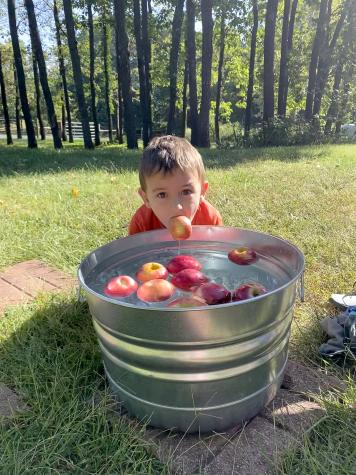
Apple bobbing: British game of sweet, sour or rotten courting
British courting tradition turned Halloween game: women bobbed for apples—one bite meant marriage, two heartbreak, three none.
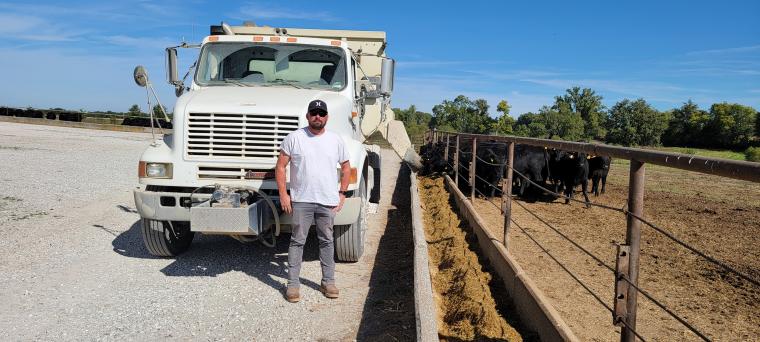
Tight labor market challenges farm employers to rethink compensation
Farmers face tight labor markets and can attract workers with flexible schedules, perks, and nonmonetary benefits that match employee needs.
Why Agriculture is Important for Everyone to Understand
Understand how agriculture affects food, economy, and daily life, making awareness important for every community member.

Demand for houseplants is thriving
Indoor plant sales have surged: variegated monsteras, colorful foliage & rare orchids top trends as demand rises among households & offices.
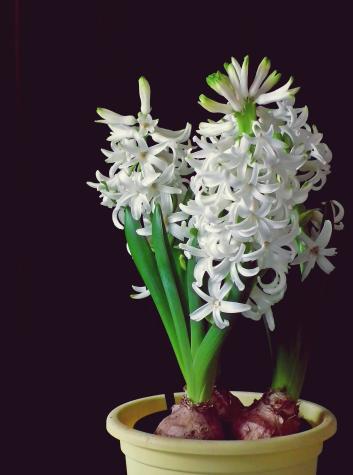
'Force' bulbs indoors for early spring beauty
Learn how to force spring bulbs indoors for early blooms and brighten your home with tulips, daffodils, and hyacinths.
MU videos share cattle management practices in drought
COLUMBIA, Mo. – Drought continues to plague growers and livestock producers in parts of Missouri, especially in the southwest corner of the state, raising concerns about feed availability.“It’s a perfect storm of high fertilizer prices, reduced fertilization of pastures lending to lower hay yields and drought in the southern half of Missouri,” said Eric Bailey, University of Missouri Extension state beef specialist. “Folks are eating…
Finding the courage to pursue excellence, Areté Contracting - Jefferson City, MO
Areté Contracting in Jefferson City shows how courage, vision, and support programs helped a veteran-owned firm pursue growth and excellence.
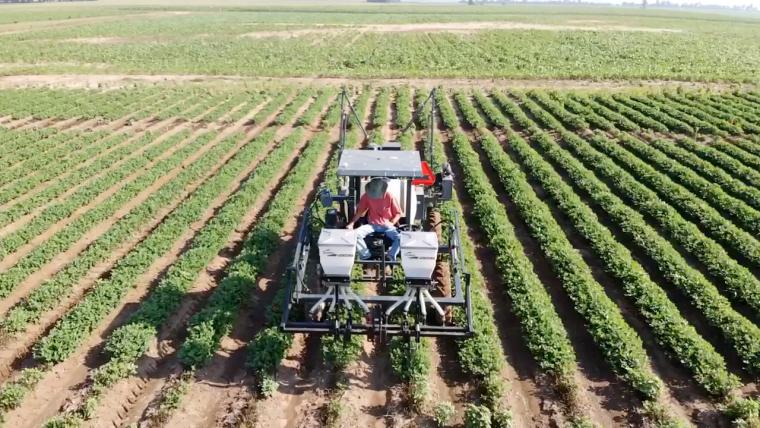
More Missouri farmers growing peanuts
Missouri farmers in the Bootheel region are expanding peanut acreage for more profitable, soil-enhancing crop rotations.

Plant bulbs in fall for spring beauty
Plant bulbs in fall for beautiful spring blooms. Choose early, mid, and late-blooming varieties for continuous color and plant in groups for impact.
Order apple trees in fall for spring planting
COLUMBIA, Mo. – Fall is prime time for harvesting juicy, crunchy fresh apples at their peak of perfection. “While munching on those tasty fall treats, make sure to peruse the nursery catalogs and place an order for apple trees to plant in your own yard,” says Michele Warmund, University of Missouri Extension horticulturist.
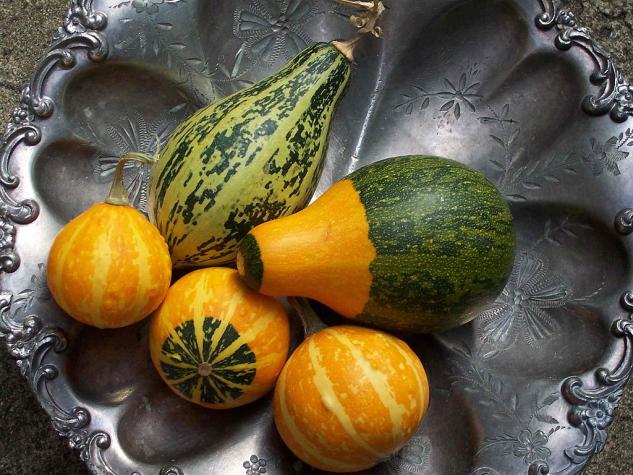
Let the gourd times roll
Learn how to harvest, cure, and store gourds for decoration, crafts, and seed saving this fall.

Missouri 4-H places first at All-American Dairy Cattle Judging Contest
Missouri 4-H dairy team wins first at the All-American Dairy Cattle Judging Contest, with all members ranking in the top 20.
